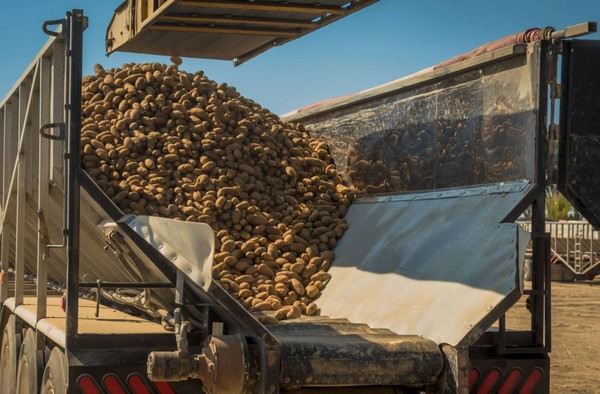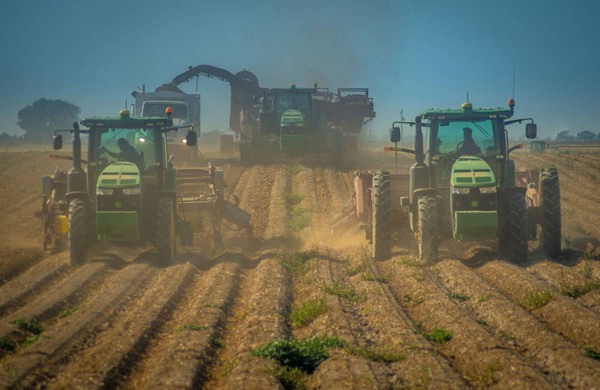Supplies of Idaho potatoes continue to be extremely tight and will likely gap before fresh crop potatoes come on later this summer.
“We’re at the end of the storage crop and supplies have become much tighter,” says Ryan Wahlen of Pleasant Valley Potato in Aberdeen, Idaho. “The current crop is also about two weeks behind across the state so shippers are trying to make the supplies that they do have in storage stretch a little longer than normal to cover a gap because there’s going to be a gap. And one that’s probably longer than normal.”

Behind that new crop delay is largely a lack of heat. “It went into the ground on time. But it’s just been a very cool spring and the potatoes haven’t had a chance to get the heat units that they need to grow,” says Wahlen. On the western side of the state, the crop is expected to begin harvest between the first week and the middle of August while on the eastern side, the harvest may not begin until the end of August.
The new crop will also be smaller. The United Potato Growers of Idaho acreage count last season was 314,000 acres and Wahlen says this year, reports are that the acreage count for 2022 will be 289,000 acres, a drop of 25,000 acres.
Some prices push up daily
Not surprisingly, demand is strong for potatoes as is pricing. “In some cases, prices are moving up daily and I think that could be the case throughout the remainder of the crop,” says Wahlen.

While prices are up, so are all the cost inputs of potato production. “Whether it’s labor or fuel, all input costs going into producing a package of potatoes are up and the same is true for the growers--probably even to a greater extent. Fertilizer costs are up 150 percent or more relative to last season. Fuel is up 100 percent relative to last season,” says Wahlen. In fact, the Idaho Grower Shippers Association (IGSA) funded a new report which concluded that overall packing costs for Idaho potatoes have risen by 36 percent in the past two years.
That could very likely be one reason for the upcoming decreased acreage, along with water issues. “I think that’s a big factor in a lot of the fields supplied with surface irrigation. They didn’t plant potatoes because the forecast was that there wasn’t going to be sufficient water to harvest them,” says Wahlen. “Most of those fields were planted with alternative crops such as wheat and barley. Growers could plant those crops and get a good return.”
 For more information:
For more information:
Ryan Wahlen
Pleasant Valley Potato
Tel: +1 (208) 397-4194
rwahlen@pleasantvalleypotato.com
http://www.pleasantvalleypotato.com/
